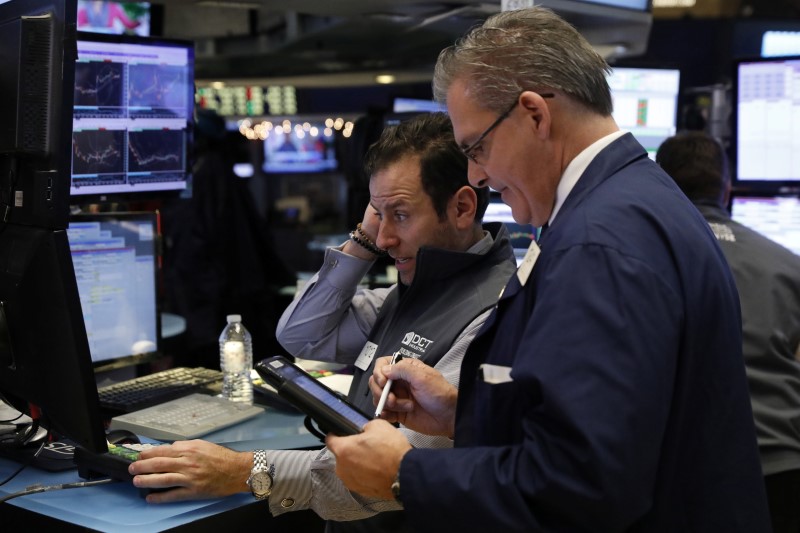By Dion Rabouin
NEW YORK (Reuters) - U.S. equities touched record highs on Tuesday and the dollar rose to its highest level in 14 years as markets shrugged off risk aversion and continued the rally that has elevated Wall Street since Election Day.
The Dow Jones industrial average (DJI) and Nasdaq Composite (IXIC) both closed at record highs, with the blue-chip index just below the 20,000 level. European stocks steadied as reassurance over Italy's plan to spend up to 20 billion euros ($21 billion) to rescue its troubled banks overtook uncertainty over Monday's attacks in Turkey and Germany.
The pan-European STOXX 600 closed up 0.48 percent, with the German DAX (GDAXI), French CAC 40 (FCHI) and British FTSE 100 (FTSE) all adding gains.
"Investors have become so fast in digesting bad news, and this explains the resilience in financial markets," said Hussein Sayed, chief market strategist at FXTM.
U.S. stocks have rallied since the Nov. 8 election, with the S&P 500 rising nearly 6 percent on bets that President-elect Donald Trump's plans will provide a boost to business.
"The market is focussed on the Trump agenda, which is tax cuts, infrastructure spending and deregulation," said Jeff Zipper, managing director for investments at Private Client Reserve at U.S. Bank in Palm Beach, Florida.
The Dow (DJI) rose 91.56 points, or 0.46 percent, to 19,974.62, the S&P 500 (SPX) gained 8.23 points, or 0.363752 percent, to 2,270.76 and the Nasdaq (IXIC) added 26.50 points, or 0.49 percent, to 5,483.94.
Emerging market shares edged up (MSCIEF) while MSCI's broadest index of Asia-Pacific shares outside Japan (MIAPJ0000PUS) fell 0.3 percent.
China's CSI 300 index <.CSI300> slid 0.6 percent on Beijing's move to tighten supervision of shadow banking activities and on liquidity concerns. Japan's Nikkei (N225) closed up 0.5 percent after a late rally linked to the Bank of Japan's decision to maintain its -0.1 percent interest rate on some deposits and ultra-loose monetary policy.
The BOJ's widely expected hold also sent Japan's currency tumbling against the dollar. The yen was last down 0.65 percent against the greenback.
The dollar (DXY) tracked U.S. bond yields higher (US10YT=RR) as the strong appetite for risk assets pushed traders out of bonds and into stocks. Positive comments on Monday from Federal Reserve Chair Janet Yellen on the state of the U.S. labour market also boosted the greenback.
"She didn't use the opportunity to take the market back from being overly hawkish," said UBS currency strategist Constantin Bolz, in Zurich. "Maybe there were some people who ... thought they would hold off from further dollar longs until she spoke, in case she were to row back."
The dollar index, which measures the greenback against a basket of currencies, rose almost 0.5 percent to 103.65 (DXY), its highest level since December 2002. [FRX/]
Benchmark 10-year U.S government bond (US10YT=RR)yields, which set the bar for global borrowing costs, hit session highs of 2.59 percent, not far from two-year highs touched last week. [US/]
"The dollar and bonds have been trading in lockstep," said Ellis Phifer, senior market strategist at Raymond James in Memphis, Tennessee. "There are still concerns spending will increase and more debt supply will be on its way."

Oil prices rose to one-week peaks but settled below session highs after Libya announced the reopening of pipelines after a two-year blockade that ended earlier this month. Brent crude (LCOc1) was last up 0.86 percent at $55.39 a barrel, while WTI crude (CLc1) added 0.21 percent to $52.23 a barrel.